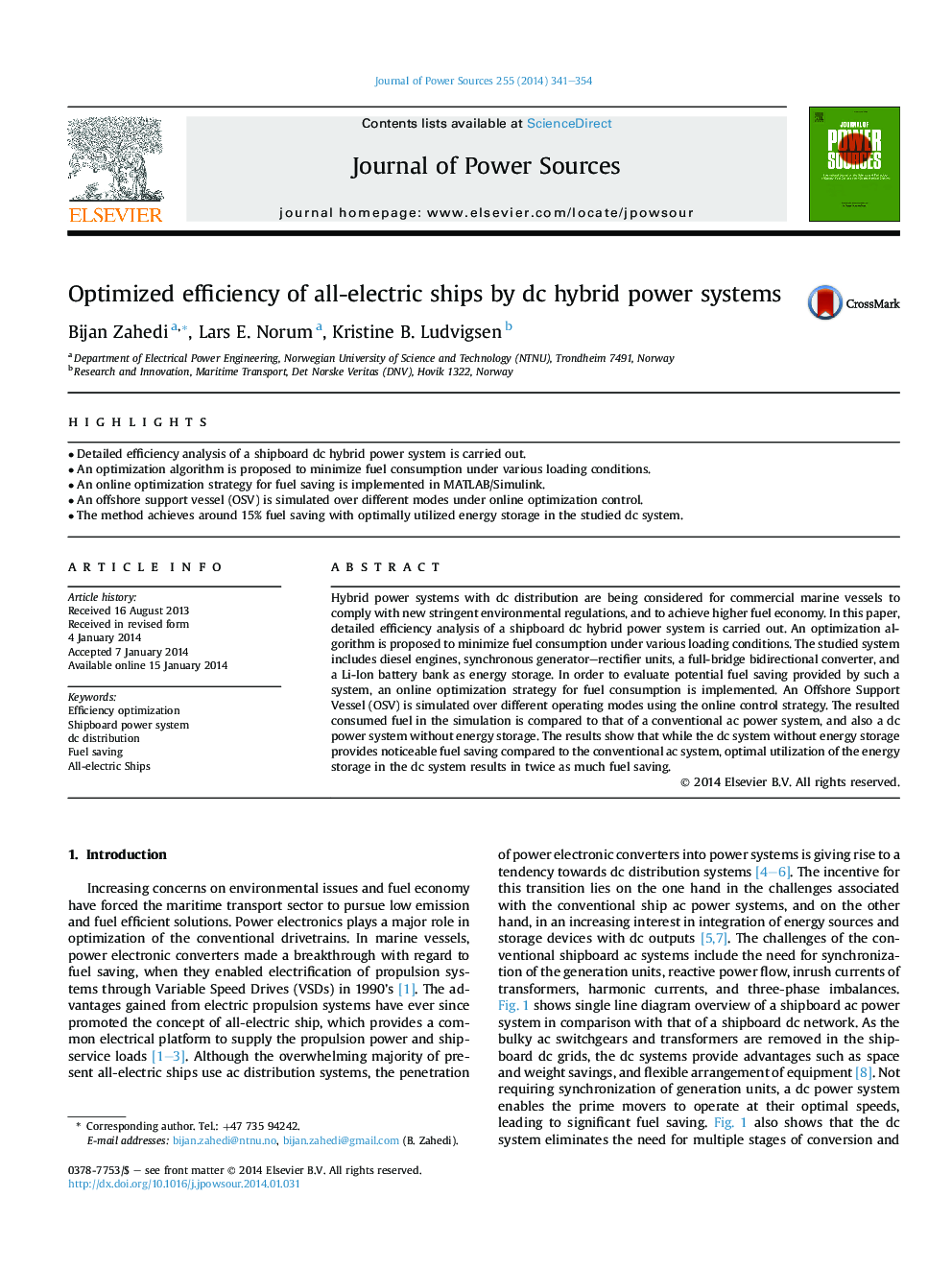| Article ID | Journal | Published Year | Pages | File Type |
|---|---|---|---|---|
| 1284227 | Journal of Power Sources | 2014 | 14 Pages |
•Detailed efficiency analysis of a shipboard dc hybrid power system is carried out.•An optimization algorithm is proposed to minimize fuel consumption under various loading conditions.•An online optimization strategy for fuel saving is implemented in MATLAB/Simulink.•An offshore support vessel (OSV) is simulated over different modes under online optimization control.•The method achieves around 15% fuel saving with optimally utilized energy storage in the studied dc system.
Hybrid power systems with dc distribution are being considered for commercial marine vessels to comply with new stringent environmental regulations, and to achieve higher fuel economy. In this paper, detailed efficiency analysis of a shipboard dc hybrid power system is carried out. An optimization algorithm is proposed to minimize fuel consumption under various loading conditions. The studied system includes diesel engines, synchronous generator–rectifier units, a full-bridge bidirectional converter, and a Li-Ion battery bank as energy storage. In order to evaluate potential fuel saving provided by such a system, an online optimization strategy for fuel consumption is implemented. An Offshore Support Vessel (OSV) is simulated over different operating modes using the online control strategy. The resulted consumed fuel in the simulation is compared to that of a conventional ac power system, and also a dc power system without energy storage. The results show that while the dc system without energy storage provides noticeable fuel saving compared to the conventional ac system, optimal utilization of the energy storage in the dc system results in twice as much fuel saving.
